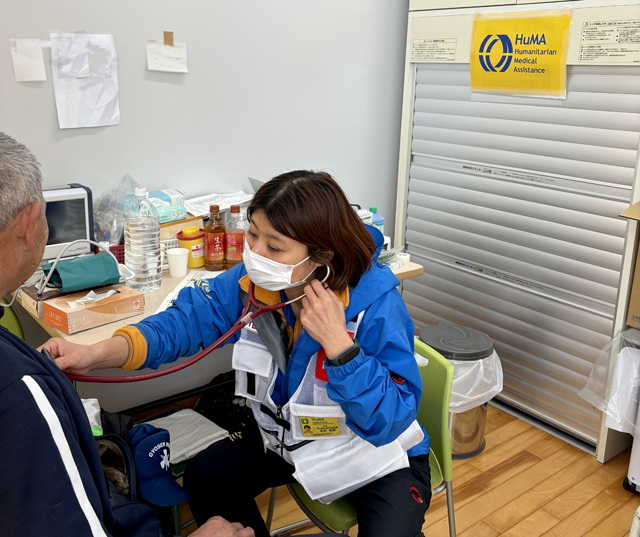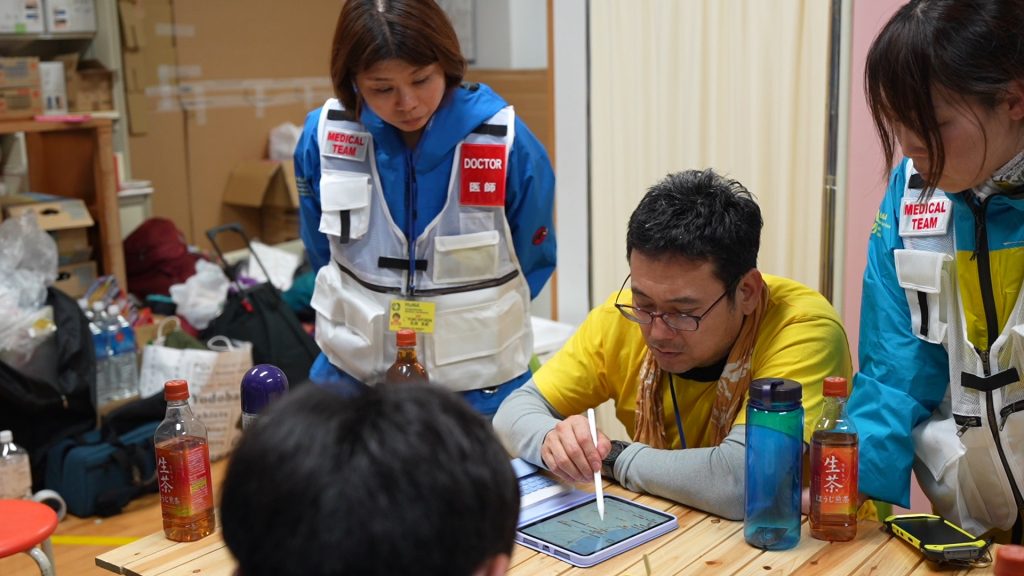We were informed that major roads in the tip of Noto Peninsula were closed from midnight to today due to intensive snow removal work, and we were worried that this might hinder the replacement of HuMA members, but the road closure was lifted at 8:00 am.
As of today, the team consists of one doctor, two nurses, and a logistics specialist, so we will be making house calls at the clinic in the morning and at the evacuation center in the afternoon. The Zenno village, which could not be reached yesterday, is difficult to reach even for mountain climbers, so we will first request the Self-Defense Forces and others to check on the situation. We hope to be able to provide support to the people in the isolated villages as soon as possible.
As for prescriptions for medications for chronic diseases, if the patient is attending Suzu General Hospital and we know the details of his/her medication, we can have the hospital prescribe the medication. We are also hurrying to gather information. During the morning examination, there were many complaints of treatment of minor injuries, upper respiratory symptoms, and constipation. We were relieved to find that no one was suspected of having an obvious infectious disease at this point in time. A person came in with an unknown prescription request and we asked for information; DPAT made a visit based on the previous day’s information, and as a result, it was determined that there was no need for intervention at this point in time. Cooperation among the groups is functioning well.
In the afternoon, the patient was examined at the 3rd Longevity Center. There were many digestive complaints, mainly constipation. There is only 3 days of kerosene remaining, and there are requests for additional kerosene, underwear, and socks. In addition, there were requests for rehabilitation and other interventions because many of the residents are elderly and have limited mobility. The staff who stayed overnight showed signs of fatigue. Longevity Center had one person transported each morning and afternoon (pneumonia and urethral balloon obstruction), which was also handled by the nurses.
During the support group meeting in the evening, a patient with fever occurred at the shelter and was handled by HuMA nurses. The patient, an elderly male, had a fever and was found to be positive on the COVID-19 test. The patient had a small oxygen demand and was judged to be hospitalized as COVID-19 moderate, so a local ambulance was requested and the patient was transported. Attention should be paid to the cluster outbreak. We organized supplies, medications, and stockpiles in the clinic, and checked and posted rules for daily living.
Today was a cold and snowy day.



